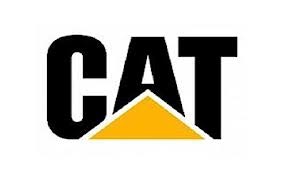
Is China’s consumption too low?
According to a recent article by Paul Krugman,China’s biggest problem is its high investment and low consumption, which is partly due to China’s economic structure. This structure includes many government owned businesses that are mostly concerned with expansion, and cheap labor that keeps coming from villages and maintains the low wages. If cheap labor from villages will cease to flood the labor force, wages will start to rise, which will augment consumption. This transition, according to Krugman, could pull back China’s economy for a while.
China’s low inflation is an indicator for the economic progress. The current annual inflation is at 2.7%, which is much lower than Bank of China’s inflation target of 3.5%. If China’s inflation remains low, it could indicate slow progress in its economic activity.
Will China reach a credit crisis?
Another factor that might adversary affect China’s economy is the potential pending credit crisis. If China’s credit expansion will keep growing at a faster pace than its economy, it might curb China’s growth: The country might not be able to borrow more money to maintain its growth.
These theories are compelling and have some tangent points. But I think other factors are affecting China that could lead to an economic deceleration, such as high commodities prices and the global economic progress. On the one hand, rising commodities prices including crude oil, coal, gold and silver are raising China’s imports. On the other hand, the ongoing economic slowdown in many regions, including Europe, has prevented China’s exports from growing. These factors could keep curbing down China’s economy from growing in the future.
How will this slowdown affect you?
The main issue will revolve around companies that draw their growth in revenues in China. Companies such as Caterpillar Inc. (NYSE:CAT) and Starbucks Corporation (NASDAQ:SBUX) could see a decline in their revenue growth rate in the coming years, which will reflect in their stock prices.
Yum! Brands, Inc. (NYSE:YUM) states the drop in revenues was due to the poultry incident back in December and residual adverse effect from the avian flu. But I suspect China’s economic slowdown and strong competition from other U.S brands have pulled down the company’s revenues.
Moreover, Yum! Brands, Inc. (NYSE:YUM)’ profit margin in China is the lowest of all other regions at 4.6%. In comparison, the profitability in the U.S is 24.4%. Therefore, if China’s business segment rises, it will further slash the company’s profit margin. In any case, if China’s economic growth diminishes Yum! Brands, Inc. (NYSE:YUM)’ earnings will continue to fall, which will adversely affect the company’s future valuation.
Despite the decision in late 2012 by the Chinese government to spend over $100 billion in infrastructure projects in the coming years, this plan seems unlikely to start in 2013 according to recent reports. Moreover, if China will pull back from its stimulus package in the near future, companies such as Caterpillar Inc. (NYSE:CAT) are likely to be adversely affected by this impediment. The company’s sales in the Asia/Pacific region tumbled down by 21% in the first quarter of 2013 (year-over-year). Caterpillar Inc. (NYSE:CAT) states the drop in sales was despite the rise in sales in China, which was due to “absence of dealer inventory reductions that occurred in the first quarter of 2012.” This could mean in the coming quarter sales in the Asia/Pacific region and specifically in China will drop. In the meantime, based on the latest monthly dealers report, Caterpillar Inc. (NYSE:CAT)’s machine retail sales dropped in Asia/Pacific by 14% during May 2013.
For Starbucks Corporation (NASDAQ:SBUX), China and Asia Pacific segment accounts for only 6% of the company’s total revenues. In the second quarter of fiscal year 2013, but this segment recorded the highest growth rate in revenues. Moreover, the company’s operating margin is the highest at 32%. In comparison, the profit margin in the Americas segment was only 21.1%. Despite the higher profit margin, Starbucks Corporation (NASDAQ:SBUX)’ profitability in China and Asia Pacific fell in the last quarter. If the competition continues to pick up and China’s growth reaches a halt, the rise in Starbucks Corporation (NASDAQ:SBUX)’ revenues will slow down.
Bottom line
The above mentioned companies aren’t the only U.S companies that operate in China. But these companies have a lot to lose if China’s economic progress continues to slide. Therefore, investors who own these stocks and are persuaded that China’s economy might reach a halt in the near future might consider taking some profits off the table.
The article Is China About to Hit the Great Wall? originally appeared on Fool.com and is written by Lior Cohen.
Lior Cohen has no position in any stocks mentioned. The Motley Fool recommends Starbucks. The Motley Fool owns shares of Starbucks. Lior is a member of The Motley Fool Blog Network — entries represent the personal opinion of the blogger and are not formally edited.
Copyright © 1995 – 2013 The Motley Fool, LLC. All rights reserved. The Motley Fool has a disclosure policy.



